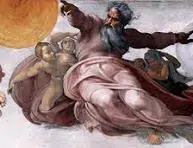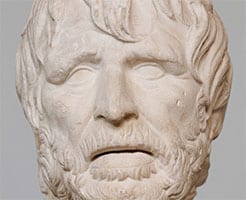 Cosmogony is a term that derives from the Greek word kosmogonía . The concept alludes to the various myths that explain the origin of life and the world . Also, according to the dictionary of the Royal Spanish Academy ( RAE ), it can refer to the theory of science that is focused on the birth and evolution of the universe .
Cosmogony is a term that derives from the Greek word kosmogonía . The concept alludes to the various myths that explain the origin of life and the world . Also, according to the dictionary of the Royal Spanish Academy ( RAE ), it can refer to the theory of science that is focused on the birth and evolution of the universe .
The most common use of the notion, however, is linked to a mythical story . There are numerous cosmogonies, developed throughout history by various cultures. In general, all cosmogonies start from an original chaos whose elements are then grouped and ordered thanks to the intervention of supernatural forces or divinities.
Based on cosmogony, the human being perceives what surrounds him in a certain particular way, forges his identity and minimizes the uncertainty that occurs when he conceives something chaotic. Cosmogonic stories are usually transmitted from generation to generation among members of the same community.
As a myth , cosmogony can be contradictory or ambiguous since its message is not unique and exclusive. It is a mode of explanation that humans develop in the face of what they do not understand: with the passage of time and with changes in context, cosmogony can be readjusted to facilitate its interpretation.
The cosmogony of Christianity , for example, is detailed in the first book of the Bible , known as Genesis . According to this cosmogony, God created the universe from nothing: "in the beginning" the creation of the earth and the sky took place and then light appeared, dividing day and night.
On a scientific level, the big bang theory can be understood as a central part of contemporary cosmogony , stipulating that the universe was created from an immense explosion.
Greek cosmogony
 In Greek mythology we find endless stories in which the rites and beliefs of the Hellenic people about the origin of man and the universe itself are recorded. These legends show us a fundamental part of human history, which extends over more than a millennium beginning with 2000 BC. C. and reached its full potential with the creation of the Iliad , Odyssey and Hesiod's Theogony .
In Greek mythology we find endless stories in which the rites and beliefs of the Hellenic people about the origin of man and the universe itself are recorded. These legends show us a fundamental part of human history, which extends over more than a millennium beginning with 2000 BC. C. and reached its full potential with the creation of the Iliad , Odyssey and Hesiod's Theogony .
The story titled Theogony of Heiod , precisely, is the best known of all those that comprise Greek cosmogony. It was written towards the beginning of the 7th century BC. C. and it is an incalculable source of inspiration for the mythology of the Hellenic people.
Hesiod was a Greek poet born approximately 700 BC. C., considered the first philosopher of Ancient Greece , given the characteristics of his writings. In this work you can see a compilation of religious myths and the organization of the genealogy of the gods, while the topic of the formation of the universe itself is addressed. Hesiod's main interest was the study of "the race of the immortals," rather than the emergence of the cosmos .
A Romanian writer named Mircea Eliade , a Romanian philosopher and writer who specialized in mythology, distinguished four phases in this essential work for Greek cosmogony:
* in the first the existence of Chaos, Gaia, Eros and the first generation of the gods is mentioned;
* The second focuses on the story according to which Cronus castrated Uranus;
* in the third, Rhea's attempts to prevent Cronus from devouring Zeus, her son, are described;
* The last one contains the narration of the battle that pitted the Titans against Zeus and the gods, which is known as the Titanomachy.
